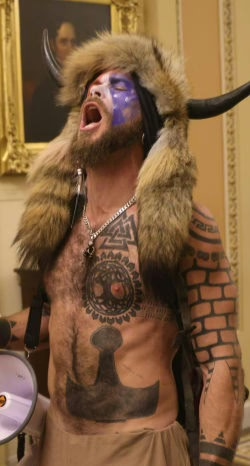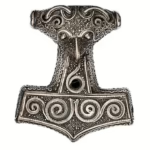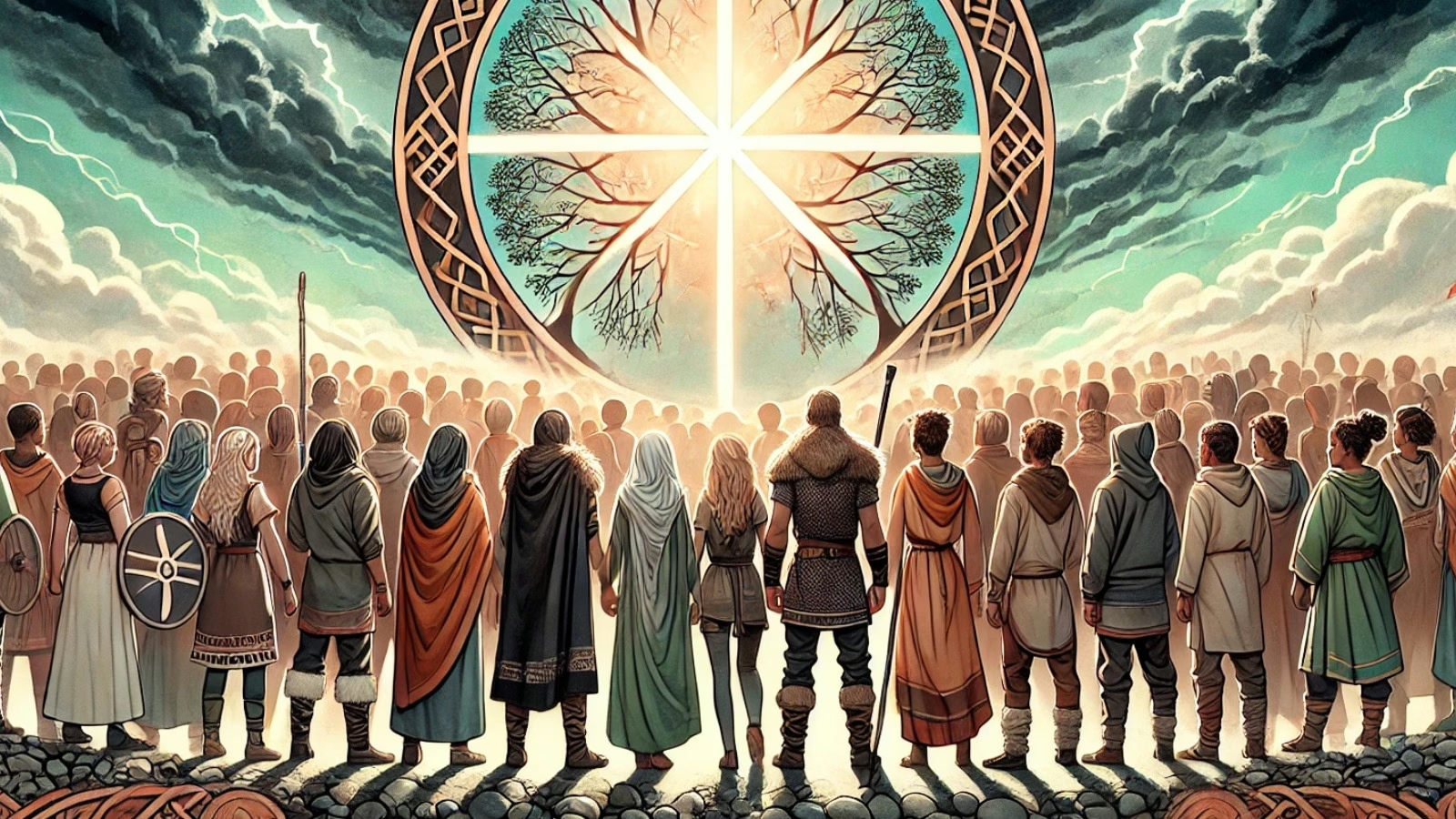In this post…
Racism has become a problem for those who follow a Norse form of spirituality. Norse mythology and religion have seen a rise in popularity in recent years, largely due to the historically inaccurate History Channel show Vikings. The myths of the Scandinavian lands teach universal themes of bravery, resilience, and the interconnectedness of all beings, and have become a source of inspiration for people worldwide. Unfortunately, Norse mythology and symbols have also been co-opted by bigots to promote their hate-filled ideologies of racism, distorting their original meanings and intent. This misappropriation not only tarnishes the beauty of these traditions but also alienates people who seek to engage with them authentically, free from the hate-filled taint of racism.
The Roots of Misappropriation

The appropriation of Norse mythology by hate groups can be traced back to the late 19th and early 20th centuries when romanticized notions of “Nordic superiority” gained traction under the Nazis in Europe. The Nazi regime appropriated symbols like the swastika (originally a sacred symbol in multiple cultures, including Indo-European and Asian traditions) and rebranded them to align with their ideology of racism and bigotry. Similarly, the runes and imagery from Norse mythology were manipulated to evoke a false sense of an exclusive “Aryan” heritage.
In modern times, white supremacist groups have continued this trend to support their own racism, using symbols like Mjölnir (Thor’s hammer), the Valknut, and the runes as markers of their hateful agendas. Social media has amplified this misuse, with extremists using Norse symbols to signal their allegiance to white nationalist ideologies. Many social media platforms have done little to nothing to eliminate this racism on their platforms because it’s in their financial interest to stimulate controversy. This promotion of racism is not only historically inaccurate but a profound betrayal of the inclusive and complex history of Norse mythology, which was shaped by centuries of cultural exchange across Europe, Asia, and beyond.
Why This Matters
The misuse of Norse mythology by racists and bigots is harmful for several reasons:
- Distortion of History: Norse mythology reflects a culture that was far more diverse and interconnected than many extremists claim. The Vikings traveled widely, trading and interacting with people from numerous cultures, including the Islamic Caliphate, the Byzantine Empire, and indigenous peoples of North America. A genetic study in 2020 revealed that the Vikings were not exclusively Scandinavian, but were much more genetically diverse than originally assumed.
- Alienation of Genuine Practitioners: Many modern Pagans, Heathens, and Asatru practitioners honor Norse mythology as part of their spiritual path. The association of their faith with hate groups creates a stigma that forces them to constantly defend their beliefs and practices. This has led to a type of reverse bigotry in which some automatically assume that if you follow a Norse spiritual path, you must be a racist.
- Encouragement of Hate: The co-opting of these symbols normalizes their use in hateful contexts, perpetuating cycles of violence and exclusion.
What Can We Do to Fight This Misuse?
Reclaiming Norse mythology and symbols requires collective action across communities, faith groups, and society at large. Here’s how we can make a difference:
1. Educate and Recontextualize
Education is the most powerful tool against hate. By teaching the true history and cultural significance of Norse mythology, we can dispel the false narratives perpetuated by extremists. Encourage discussions about the diversity of Norse culture, their extensive trade networks, and their inclusivity in adopting foreign ideas and traditions.
Promote books, articles, and resources by reputable historians and scholars. Works like Neil Price’s Children of Ash and Elm or Jackson Crawford’s translations of the Poetic Edda provide accurate insights into Norse culture and mythology.
2. Use the Symbols Authentically

One way to counteract the misuse of Norse symbols is to use them in positive, inclusive ways. Display symbols like Mjölnir or the runes with clear messaging about their historical meanings and modern interpretations that celebrate diversity and unity. Use the opportunity to discuss what the symbols mean in the context of an actual Norse spiritual path instead of a hate group.
3. Support Inclusive Heathenry Groups
Organizations like Heathens Against Hate (HAH) and The Troth actively combat the misappropriation of Norse traditions. Support these groups, amplify their messages, and encourage others to join their efforts to reclaim these symbols and traditions.
4. Call Out Misuse
When you encounter Norse symbols being used by hate groups or individuals, don’t let it go unchallenged. If you see something, say something. Politely but firmly point out the misuse and provide resources that clarify the true history and meaning of the symbols. Social media is also a powerful tool for spreading awareness and combating misinformation.
5. Encourage Interfaith and Intercultural Dialogue
Highlighting the shared values across different spiritual paths and cultures helps to build bridges and reduce exclusivity. Encourage dialogue between modern Heathen communities and other faith traditions to foster understanding and mutual respect. Sponsor diversity and inclusion activities with your local group.
6. Celebrate the Diversity of Norse Mythology
The myths themselves are rich with characters and themes that challenge bigoted ideologies. Loki, the trickster, embodies chaos and challenges to authority. The gods frequently work with giants, their so-called enemies, to achieve balance. These narratives remind us of the complexity of relationships and the necessity of embracing difference.
7. Amplify Voices from the Community
Elevate the voices of modern Heathens and Pagans who are actively working to create inclusive spaces. Share their stories, rituals, and insights to show that Norse mythology belongs to everyone who approaches it with respect and reverence.
A Path Forward
Norse mythology and its symbols are not inherently hateful. They are stories and tools that reflect the rich tapestry of human experience—our struggles, triumphs, and connections. By reclaiming these traditions from those who misuse them, we honor their true legacy and ensure that they continue to inspire and unite people from all walks of life.
As practitioners, allies, and lovers of myth, it is our responsibility to stand up against hate and champion the inclusive spirit of these ancient stories. Together, we can ensure that Norse mythology remains a source of wonder and wisdom, free from the shadows of bigotry and racism.
Share Your Thoughts on Racism in Norse Spiritual Paths!
How do we fight racism and bigotry in Norse spiritual paths and religious practices? Have you experienced it yourself? Share your thoughts in the comments below!
